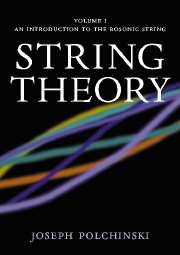I came across an
interesting opinion piece today and I found this quote particularly interesting (and it should be interesting to
those who are wondering why nobody seems to listen to philosophers any more).
"Philosophy, it seems to me, has spoked its own wheel in its hyper-late-post-modern deconstruction that somehow deconstructed itself. It broke down in such a way that the philosopher is now so divorced from real life and sucked into a simulated one (modelled) that often he has nothing constructive to say on current events."
I think that that right there sums up what is wrong with philosophy, it has distanced itself so far from real life and current events that it is no longer applicable. I think, quite seriously, that the reason why philosophers (collectively, not individually) are no longer taken seriously is because they collectively stopped answering questions. Anyone who had to suffer through David "The billiard ball did not cause the other to move" Hume, Søren "Believe
against all reason" Kierkegaard, Friedrich "There is no free-will" Nietzsche and Peter "I actually have a very good argument if you will listen to me because if you think about it long enough I'm sure that my ideas will convince you that your natural inclinations of morality and basic human needs and desires are all wrong and misguided and supremely immoral because when you consider the utility it makes sense when you weigh the interests of others against your own inclinations then it makes perfect sense it's just that the details are a little fuzzy" Singer will understand.
What it comes down to is that the field of study known as philosophy stopped offering answers or solutions to practical problems, and got caught up in arguing about trivial things (such as trying to prove that we don't exist). The reason why this happened is because there was another outlet, namely science (mostly physics) where people could turn for answers. For example, in the case of billiard balls, Hume's response was "we can't tell if one billiard ball caused the other to move". Newton's response, on the other hand, was "p
i = p
f --> p
1i = p
1f + p
2f". Well that may be slightly incomprehensible so some people, but at least it was an answer, and furthermore Newton could go on to explain about the sun and the moon and the stars and the planets and things falling and things flying through the air and light and a lot of other cool things. If you go ask a philosopher about that stuff they will probably say, "Well we can't actually see anything, and you really aren't talking to me." It's no wonder people stopped listening to philosophers.
Until this problem is fixed in philosophy you will never read a news story that quotes a philosopher (think about it, how many news stories are there that contain the phrase "Dr. So-and-So, a noted scientist/physicist/astronomer/biologist/chemist/sociologist said...", but how many have quotes from a "noted philosopher"?). This is because when news people (or people in general) want an answer to a question they go ask a scientist, never a philosopher. I can't count the number of times I met someone who found out that I study physics and they instantly say "Can I ask you about ...?", but I never have anyone say that when the find out that I also study philosophy. Mostly they just look at me funny.
Now I do realize that a lot of professional philosophers do do important work, and there are several of my former professors that I have tremendous respect for, but until philosophy in general stops arguing that there is no truth and there are no answers and is capable of providing real world applications to what they are talking about (i.e. solving real problems), then it will forever remain deconstructed and broken.
[PS: I know that there are some philosophers out there who are trying to fix this, but unfortunately there are not enough of them. There are some indications that this is changing, but it may take a while until you regularly have quotes from "noted philosophers" in news stories.]











